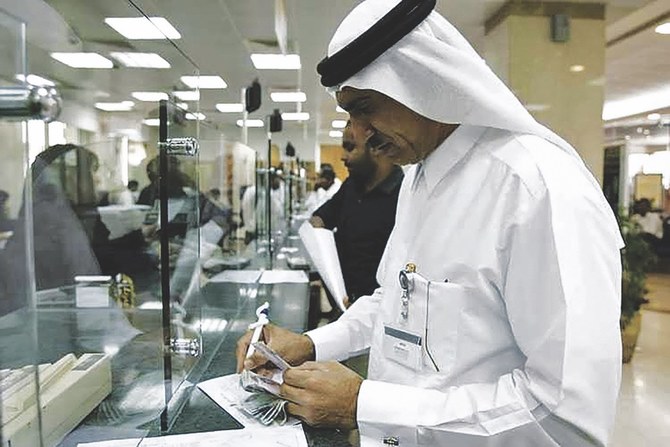RIYADH: Launched in November 2014, Beehive is a financial technology (fintech) company that created the Middle East and North Africa (MENA) region’s first peer-to-peer (P2P) lending platform to be regulated in the Middle East by the Dubai Financial Services Authority.
It has rapidly grown into a leading disruptor in the fintech industry, providing an alternative finance solution for small- and medium-sized enterprises (SMEs).
Nizar Al-Maree heads Beehive in Saudi Arabia and is leading the expansion of the company in the Kingdom with the 2020 launch of the first regional partnership of its kind between a pioneer Gulf Cooperation Council (GCC) fintech and a major Saudi bank to offer digital SME financing.
The brainchild of serial entrepreneur Craig Moore, supported by Rick Pudner, former group CEO of Emirates NBD bank, Beehive is a cloud-based, scalable online lending platform that directly connects businesses looking for finance with investors that can provide funding support for their growth.
The platform applies the innovative technology of crowdfunding, connecting a business with a host of investors, to eliminate the cost and complexity of conventional finance.
“The result is a more efficient, streamlined process that gives SMEs access to finance at a high speed and lower cost, while opening a new asset class for investors with great returns on their money,” Al-Maree told Arab News.
“It created the first peer-to-peer SME lending platform in the region, the only one regulated in more than one country in the GCC (regulated in the UAE and Bahrain).
“The team behind it are experts who came from unique and diverse backgrounds and who managed to grow rapidly regardless of the difficulty of introducing a concept such as P2P lending to the GCC and tapping into a very complicated topic (SME).
“The SME credit assessment tool, that is fully created and developed in-house to allow financial institutions to assess and understand the credit worthiness of small businesses, is becoming a game changer and is now in its fifth generation with very low default rates (less than 2 percent),” he said.
This model allowed Beehive to digitize and streamline the lending process for SMEs to provide a fast and more cost-efficient system that created a win-win solution, offering firms quicker access to lower-cost loans, and investors safer and better returns on their money with the opportunity to diversify the risk.
The impact of this concept is that it has encouraged SMEs to be more innovative and allowed them to expand, creating more jobs and providing extra services. As a result, the business and investor communities and the wider economy will benefit from new opportunities for growth.
FASTFACT
Nizar Al-Maree heads Beehive in Saudi Arabia and is leading the expansion of the company in the Kingdom with the 2020 launch of the first regional partnership of its kind between a pioneer Gulf Cooperation Council fintech and a major Saudi bank to offer digital SME financing.
“It’s also worth mentioning that Beehive is the first independently certified P2P finance platform in the world and the first peer-to-peer platform that is Shariah compliant, which provides both investors and businesses with financial products that are compliant with Shariah principles and is recognized by the Shariah Review Bureau and audited by Shariah financial experts,” Al-Maree added.
“Given the technology disruption impact of the financial institutions and the opportunities it opens with the amount of innovation in fintech, banks and financial institutions started doing one of three things to keep up: Partnerships with fintech, establishing incubators for fintech startups, or acquiring fintech companies with solutions and products of interest.”
Beehive has been chosen among hundreds of screened fintech ventures around the globe by a local bank for a partnership to provide SMEs in the Kingdom with fast and lower-cost financial products utilizing its technology and expertise in the local and regional SME markets.
“This is significant for two reasons: It is the first relation of this type between fintech and a bank in the region. Secondly, this will be the start of a new area of financial services, where more banks will be motivated to go ahead and partner with other fintechs that serve their purposes, which currently is not an easy decision to make,” said Al-Maree.
“The concept we are preparing with the bank will encourage other financial institutions to provide other financial products that serve different segments with the same logic. This will cause a revolution in the banking services and take our economy and quality of life to the next level.
“Advancing financial technology and services is the basis for a strong and fast-growing economy that enables innovation and creativity across all sectors to provide high standards of services and higher financial inclusion.
“SME lending is known for its complexity, high risk and high cost. Additionally, from a P2P perspective, the key challenge for P2P platforms is how to gain the trust of the public to invest in the platform and allow the business to prove its concept, whether SME lending or any other idea,” he added.
“Last month, we managed to lend more than half-a-billion AED (Emirati dirham) to SMEs through our platform. We have registered more than 12,000 investors who have facilitated funding of more than AED500 million ($136 million), supporting the funding requests of more than 500 businesses. This is a very difficult job that Beehive has successfully done and is the main driver for the expansion.”
Beehive plans to utilize its talents and technology to introduce new and more technically complicated products that will simplify financial services to cover larger segments of the market on both corporate/SMEs and individual levels by working with local and regional financial institutions and banks as a digital enabler.
“We now have offices in the UAE, Bahrain and Saudi, and we want to become the Gulf’s regional enabler for SME lending,” Al-Maree said.


















